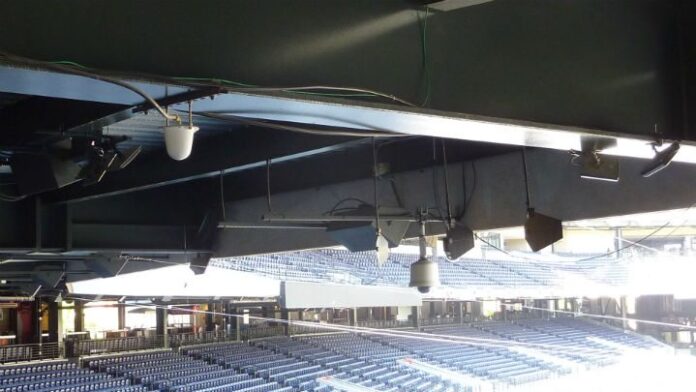T-Mobile US DAS comments from PCIA Wireless Infrastructure Show 2015 Hetnet panel
HOLLYWOOD, Fla. – Alan Tantillo, national director for development and siting policy at T-Mobile US, participated in a heterogeneous networks panel discussion during PCIA’s Wireless Infrastructure Show. Outlined below are a few of Tantillo’s comments:
- “I will hold my nose and I will attach to baseball stadium when I have to.”
- “Big venues have already been cherry picked.”
- “As we move to small venues, we need to see a shift in philosophy. … We need to see venues decide to put systems in themselves – just like power, light and water.”
- “Neutral-host systems for hospitals are just not cost-effective.”
- “The notion that we have to put in a multimillion-dollar DAS system in hopes that everyone will show up is just not economical and viable.”
- “If they want to attract people to facilities and their venues, they are going to have to start participating in the cost.”
- “The foundation is starting to crumble underneath the old DAS model that we have been accustomed to – that we have seen in airports, NFL stadiums and baseball parks.”
- “Real estate developers realize that it [wireless] is a selling point for their property … to fill their buildings faster.”
- “[Neutral-host systems for municipalities] did not overtake the world because they were never cost-effective.”
- “Not enough capital in the world to cover all of these places and continue to put in old DAS-type systems.”
- “We have to find ways to put newer technologies to use and we have to find ways to expand the concept that the verticals are going to provide the infrastructure themselves.”
- “In our business, the only cost we have not been able to drive down is our real estate cost. They go up every day. That has got to change. When we get down to the smaller venues, the hospitals and enterprise space, I can’t afford to pay anything. We will walk away.”
- “[Third-party neutral host providers] need to change philosophy from being a typical neutral-host provider to being more like a typical real estate broker. Just take 6% of the sale and then get out of the way.”
- “[Building owners] need to put the infrastructure in so that all four of us [Verizon Wireless, AT&T Mobility, Sprint, T-Mobile US] can have chases, fiber and get to what we need to without having to rip everything up.”
- “There will be a shift in the real estate environment that starts recognizing that the cost to venues of not having us present will become more apparent to them.”
- “The sands of the foundation of what we have been doing has already started to shift. The industry models that we have been using are going away in the future. We have to accelerate not using those models anymore.”
- “Several weeks ago, we had a large hospitality entertainment company come to us saying that you have to pay several million dollars to run the system because your customers are coming to my front desk complaining about my service. My answer back to them is that they are your customers. They are coming complaining to you because you have not provided what they expect in facilities such as yours. In order for us, together, to meet our customer needs, you have to you have to strip away the third party that has been put in the middle – that is charging you millions of dollars to be there. Oh, by the way, you have to get rid of what you are also making off of that, if you expect us to be there. We have to change model. We have to strip away the recurring cost of landlords. We have to strip away extra cost of third parties and we have to get to the cheapest and most cost-effective way to do it. If it is teaching the landlords that for all of us to come put in our own access node, because that is going to provide everyone the best service, then that is what we need to do. At the end of the day, what we have been doing is not going to work in the long-term. We gotta stop. We have to find new way to do it.”
- “We have to change the paradigm of the industry. If the most cost-effective solution is to put four access units [single use] in a facility, then that is what we have to do.”
- “I believe that the technologies will continue to develop so that the lower-cost single-use systems will morph into the lower-cost, multiple-use systems in the future.”
- “We, as an industry, have to work together to provide the best, most cost-effective solutions for our customers. It is going to be a balance between educating venue owners that they will need to bear the cost or that they have to be relaxed in letting carriers put in the most effective system, which could be up to four [access systems] in their facility.”
And the No. 1 quote:
- “It is not cost-effective to put in a neutral host DAS system. There are more efficient ways to do it. Nokia and Ericsson have small cell solutions that are one-fourth of the cost, or in some cases one-tenth of the cost of what we would have to do to pay for the cost of a head-end DAS system.”
Watch an edited version of Tantillo’s comments:

